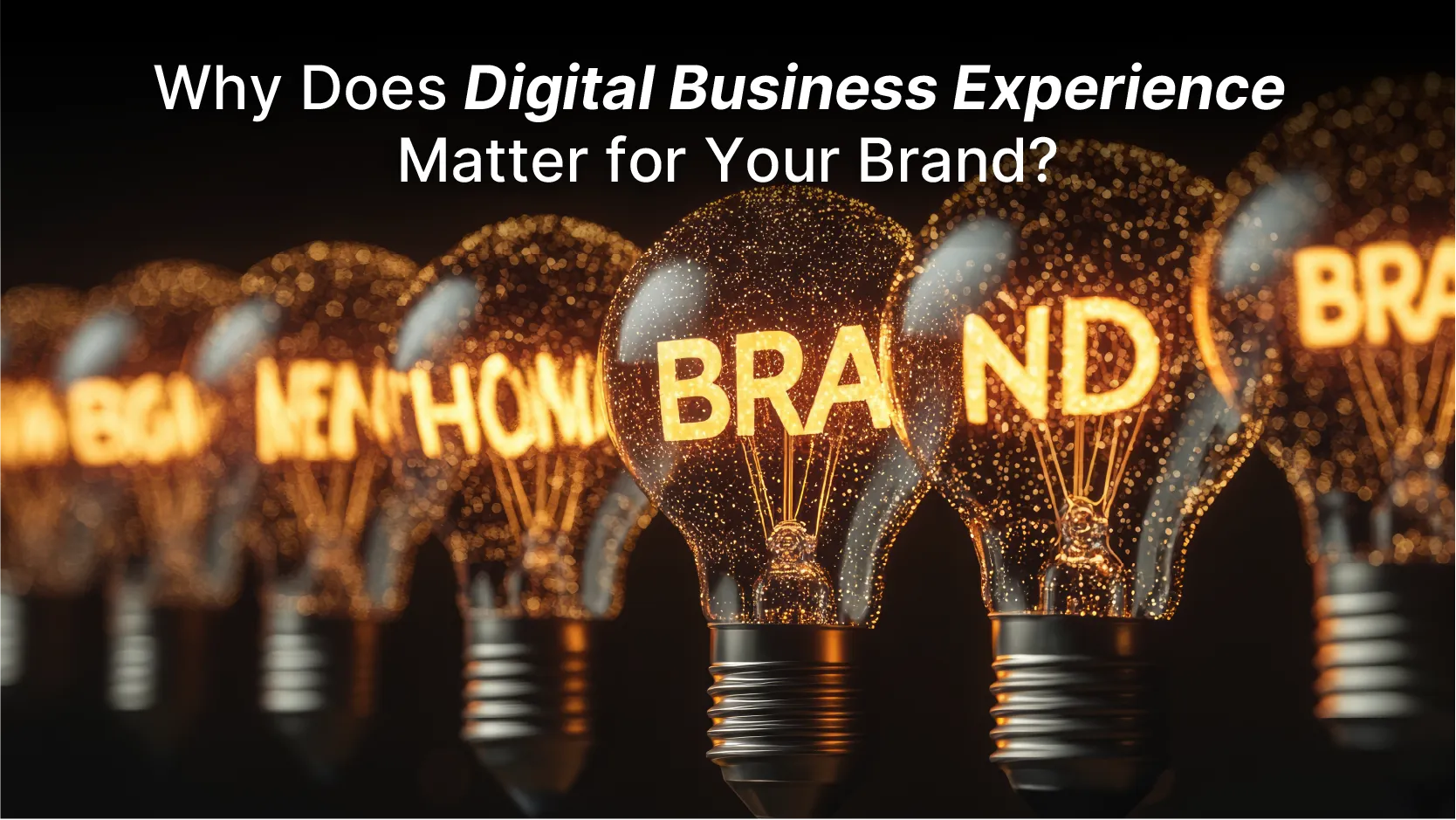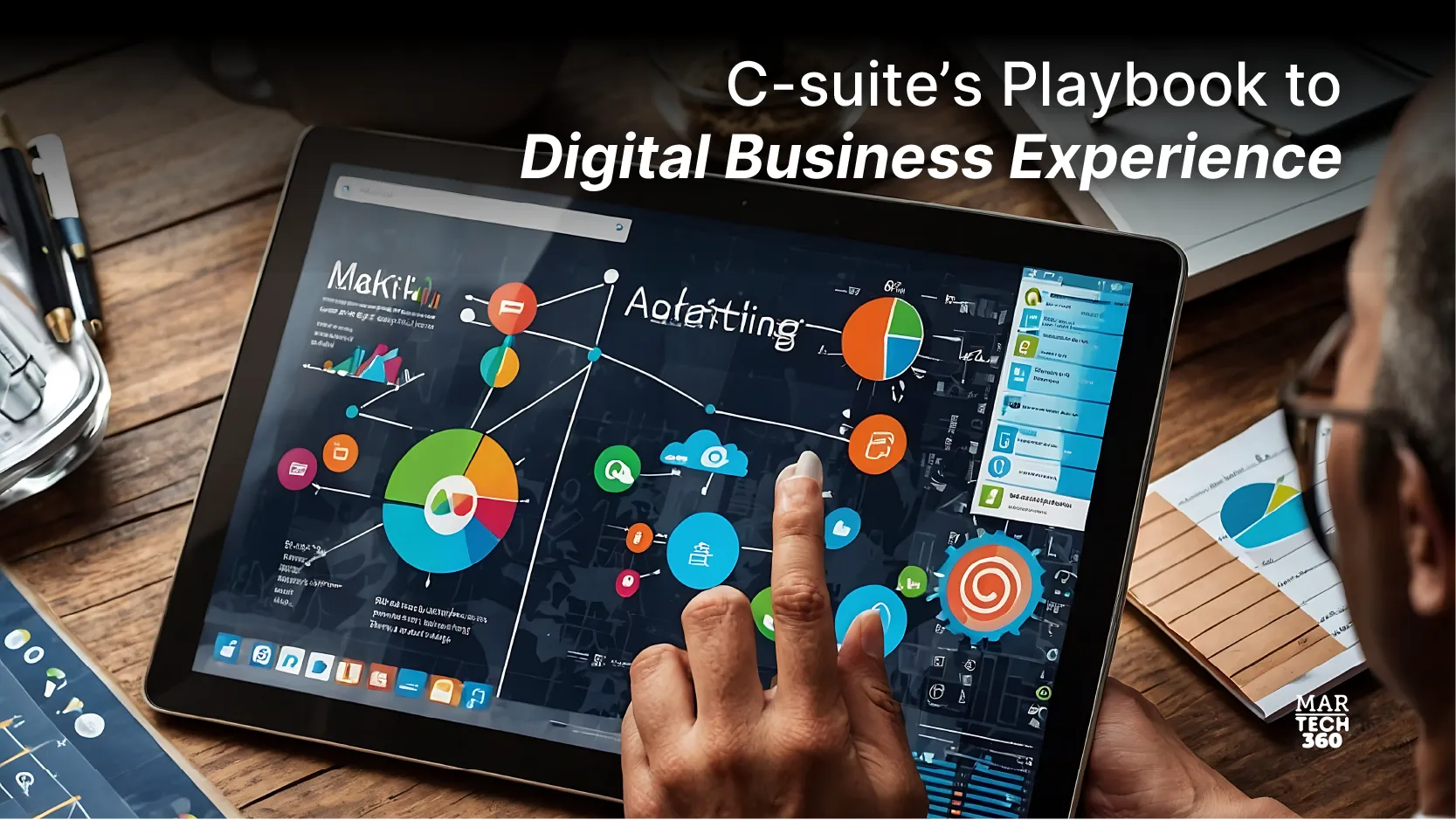Businesses globally are rapidly embracing a digital-first approach to enhance the experience of their customers, employees, and other stakeholders. Despite a significant increase in the demand for digital businesses, only a few organizations are able to completely digitize their touch points.
A Gartner report surveyed over 3000 B2C and B2B clients, and found that 14% of the respondents had a digital interaction with a brand that encouraged them to change their approach.
Decision-makers are seeking opportunities to offer digital business experiences to get a competitive edge. In this blog, let us have a look at the definition of digital business experience, why it matters for your brand, and the tools that help you deliver a digital experience.
DBX Explained
A digital business experience (DBX) is an interaction between a single user (client, partner, or the workforce) or an organization. Enterprises are able to digitize their processes by integrating cutting-edge technologies. Creating a digital business encompasses embracing tools that enable organizations to digitize beyond paper-driven processes to offer services that use modern technology.
It has two primary aspects: the company leverages digital technology and offers interactions with either one user or an entire organization. For this, companies use intelligent devices, websites, and mobile applications to offer digital experiences to clients, business partners, and workforce that are using these technologies to interact with the brand.
Digital business experience is not an IT-powered strategy, it is rather a customer or user-driven initiative. There is a significant distinction between integrating digital tools and using them to enhance the client or user experience to effectively address their needs. It is crucial for business leaders to align their processes and technology with the user or client needs to offer a holistic digital experience.
Now that you have a clear understanding of DBX, let us have a look at why it matters for your brand.
Also Read: A how-to guide on customer experience analytics [+ Free tools]
Why Does Digital Business Experience Matter for Your Brand?

In today’s digital world, your brand’s online presence isn’t just for customers. It also impacts employees and business partners. Whether it’s customers, employees, or partners, a smooth, fast user experience builds trust and keeps prospects engaged.
Since customers want convenience, employees need efficient tools, and partners expect seamless collaboration, a well-drafted digital experience strategy can help you meet their expectations on all fronts.
A consistent DBX reflects your brand’s values, boosting loyalty between customers, employees, and business partners. A great digital business experience drives trust, collaboration, and long-term success for your entire business ecosystem. There are a number of platforms where brands such as yourself can implement DBX strategies and foster meaningful interactions with clients and consumers alike.
Let us have a brief overview of what these digital experience platforms are.
What are Digital Experience Platforms?

A DBX platform is a seamlessly integrated comprehensive suite of tools that is designed to compose, manage, deliver, and optimize digital experiences across omnichannel customer journeys. These platforms are an effective way to interact with users through generated content and actively address their requirements through accumulated data. Digital business experience tools also help complex organizations manage their digital assets to ensure all their systems function harmoniously.
DBX tools assist in the dissemination of the content through the following digital channels:
- Social media platforms
- POS (point of sale) systems
- Chat interfaces
- Digital signages
- Internet of Things (IoT) devices
- E-commerce websites
- Company sites
- Mobile applications
Rather than just distributing content across channels, digital experience tools allow marketing automation and offer a consistent digital experience throughout all channels. This approach facilitates a defined desired outcome. Integration of conversation AI tools enables organizations to interact with clients with bespoke automated content. It allows businesses to respond to the customer quickly and make data collection and analytics more efficient.
However, implementing an iron-clad DBX strategy is not a cake walk, as businesses often struggle to ensure seamless delivery of their offerings in line with business or customer demands. That’s where dedicated DBX tools come in.
Let us now have a look at the top tools that can help strengthen your digital business experience and transform prospects into clients.
What Are the Best Tools for Improving Digital Experience?
An ideal tool can improve digital experience for your clients by managing multiple digital assets to collect matrices that help your organizations have an efficient road map to their client journeys.
1. Conversational AI & Cognitive Computing
Artificial intelligence (AI) is offering businesses a revolutionary approach to improve their customer experience (CX). These tools also help optimize the digital business experience initiatives from ideation to development and execution. As AI tools are capable of observing, hearing, interpreting, and speaking based on inputs provided, businesses have immense opportunities that they can explore. Organizations now can deliver AI-driven digital customer experiences that simulate human interactions. Integration of AI tools can create opportunities for conversational analytics offering client journey analytics and constantly monitoring business performance.
2. Content Operations
Content operation is the infrastructure of the business that aligns resources, processes, and technologies to create, deploy, and deliver effective content across various channels. A well-strategized content operation integrates seamlessly with marketing automation. It considers authoring environments, scheduling, analytics, project management, publishing tools, reporting, and others.
3. Digital Twin
A virtual representation of a system or an object throughout its lifecycle is referred to as a digital twin. The data gets updated in real-time to use simulation, machine learning, and logical reasoning to enable informed decision-making. Businesses can develop digital twins that simulate the complete organization’s ecosystems, providing in-depth insights into all the touchpoints. Digital twins create digital replicas of processes to provide an organization with the capability to simulate, evaluate, and improve client journeys and employee engagement. As a result, brands will be able to deliver a consistent and bespoke digital business experience.
4. Customer Data Platform (CDP)
CDP is a tool that gathers and centralizes client data from various sources to develop a unified, coherent, and holistic view of each client. Customer data platforms enable a business to effectively understand its users, develop effective marketing strategies, automate workflows, and create tailor-made customer journeys.
5. Omnichannel and Automated Content Management Systems (CMS)
A headless CMS disseminates content to multiple channels using APIs. It equips content creators with tools to generate content for mobile applications, smart devices, social media platforms, websites, digital signages, and e-commerce websites. Organizations can centralize the content creation process by managing content from a single tool. These platforms also monitor and measure client engagement throughout multiple channels.
Digital Business Experience in Conclusion
A well-designed digital experience strategy helps organizations to reinforce their brand identity. When clients, partners, and employees consistently have positive experiences with your brand, they’re more likely to experience brand loyalty. In the true essence, digital business experiences are not about having an online presence or integrating cutting-edge technologies. It is all about drafting meaningful, memorable experiences that foster trust, loyalty, and long-term success for your brand.


Comments are closed.